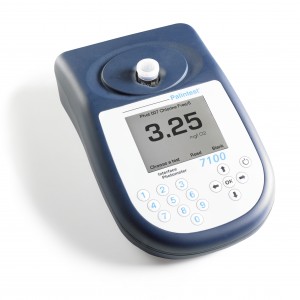Total and Free Chlorine is the measurement of the chlorine which is active in the pool (free chlorine) and the non active chlorine, you can usually smell an odour of chlorine when the non active chlorine level is high. The common term for the non active chlorine is “Chloramines”. If the chloramines, are too high they can effect the workings of the free chlorine in your pool. The most effective way to elevate the chloramines in your water is to oxidise/super chlorinate the pool water, by shocking the pool with chlorine.
Free Chlorine’s job is to kill all bacteria in you pool or spa water. The primary source of bacteria is the swimmers and bathers themselves, also top up water and debris, such as leaves, grass, dust etc. Animals can contribute significantly to bacteria levels. A large dog can contaminate up to twenty times the volume of water that a humans can. If you do not keep your chlorine level within the recommended parameters the growth of bacteria can cause infections in ears, nose and throat and possibly other more dangerous diseases like Meningitis.
By regularly testing the water and adding the required amount of chlorine to the pool a residual level of 1.0 to 2.0 parts per million in winter and 3.0 – 4.0 parts per million in summer is easily maintained.
There are various types of chlorine available. The come in different forms, granular, liquid or tablet, and can also be “stabilised” or “unstabilised”.
Chlorine can also be generated by a salt water chlorinator. Each of these forms has its own features and benefits.
Here at Pool and Spa Mart Bull Creek we will advise you on what form of chlorine is best for your swimming pool or spa. This will be depending on the condition of your pool or spa water at the time of testing.
Please note – A heated pool will require more chlorine that a non heated pool. This is because the chlorine will be used up at a much higher rate in warmer water.










